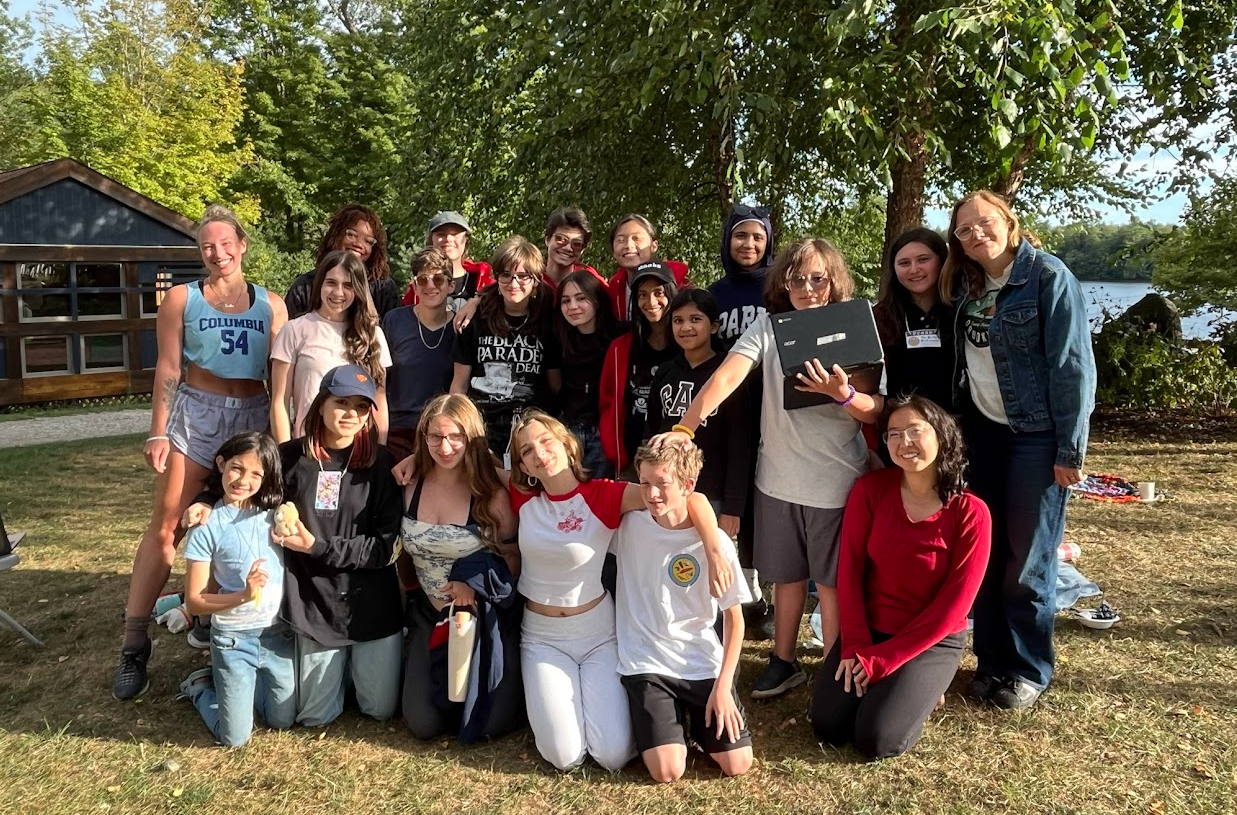American youth are spearheading the fight for the country we will inherit in just a couple of years.
This includes us: WriCampians.
It’s crucial that we do so; when the youth feel empowered and elevate their voices, we take control of our future. As American democracy and the foundational values of our country are threatened by the Trump administration, we have begun to channel our anger, creativity, hope, and fear into advocacy and protest.
Youth on the frontlines of American political advocacy has, throughout our country’s history, been fundamental to the preservation of American democracy. And we, as WriCampians — members of and the country’s youth — inherit the legacy of youth protest and advocacy, it’s essential that we focus now on learning from one another and from history.
One of the most effective and illuminating moments in advocacy history was the student-led sit-ins and protests fighting for desegregation and racial equality during the Civil Rights Movement. The Students Nonviolent Coordination Committee (SNCC) organized students from over 900 universities and high schools to protest laws, companies, establishments, local, and federal policies upholding racially segregated spaces.
Their political organization was explicitly bottom-up rather than top-down, meaning they steered clear of working under large, established adult-run organizations, minimally managed SNCC branches, and instead gave local political youth organizers the power and freedom to make decisions for themselves, under the premise that those doing the advocacy work should make the decisions. It didn’t just enable the movement to grow dramatically and scale nationally— including in the Deep South–it also empowered every single student member of protests and SNCC.
In the context of today’s political climate, this means it’s important that youth advocacy makes space for students everywhere to learn how to use their voice to express thoughts and opinions–the quieter we get, the louder we can hear the voices of Trump and his administration.
The most dramatic shift in the role of youth in shaping American policy resulted from student protests against the Vietnam war in the 1970s. Rather than a coordinated, organization-based approach to protest, students protesting the war mobilized extremely quickly. After university and high school, students protested for days. Many students began to get suspended for skipping class. The suspensions escalated to the Supreme Court, which ultimately determined the right for students to peacefully protest and express their political views at school.
From this victory, we can take both their quick-mobilization, reactionary strategy, and even more importantly, the information that the US Constitution is on our side. The Trump administration and other leaders try to insinuate the idea that protest against our leaders is anti-America by owning the image of American flags and labelling us as extremists in order to invalidate our fight. In reality, student advocacy is the foundation of equality in America and a guaranteed right by the supreme court: the ones violating American values and the constitution are those currently in governmental power.
Now, it’s our turn, as WriCampians, as the next generation, and as students to carry on the legacy of youth protest and fulfill our responsibility to fight to uphold our constitution.
As Middle Camper Wilson R. explained to us, “My parents will be talking to me at dinner about Trump’s actions, and I’ll be like, ‘let’s organize a protest!’ And they’re like, ‘other people will organize them, and we’ll go to them when we can.’” Wilson sheds light on the generational differences between the ways in which adults and youth may respond to the political changes of the moment. He suggests that young people may be more willing to fight at the vanguard. Maybe our revolutionary drive is a combination of youthful energy, naivety, anger, and excitement. Maybe it’s the responsibilities and work adults have. Perhaps it’s the prospect of the ruination of our lives and country that looms overhead; regardless, it’s clear that our generation is in a unique position to advocate. As Senior Camper Brian put it, “Only younger generations have the chance to mobilize in society and they’re going to take positions of power.”
But mobilizing for change is important even when protests are small, and even when there’s little chance of direct impact, media coverage, and immediate shifts in power. Senior camper Mai from — explained that “Montana student protests are more for the people involved than it is for the actual impact… it makes people feel connected to others with shared opinions, which is important in a state like Montana because so few people have liberal opinions.” Having the right to protest isn’t guaranteed forever, and it’s also not enough — we must actually utilize the right to empower our generation and communities.
Nonetheless, as a student, protesting can be terrifying: there are people who already know what they’re doing, and delving into the research required can be daunting. As Wilson R. put it, “We joke around about it because we are kids and everyone should keep levity in dark times, but we’re also really scared and we want to do something to keep agency because what kid doesn’t?”
Websites like findaprotest.info will show you protests in your area, and mobilize.us/indivisible/ will show you ways to get involved in activism based on specific issues.
One rising youth-led non-profit organizing national walkouts and advocacy in defense of American democracy and the constitution is We the Students, wethstudents.us. Founded last May in New York City at Bronx Science High School, WTS organized a walkout with over 500 students from over 30 NYC schools and has since begun to expand nationally, meaning it’s currently looking for high school students in other states, cities, and schools to lead their community or local area in walkouts and protests. In giving power and autonomy to local student leaders and participants, WTS seeks to learn from historic American youth activism to strengthen our cause and fight. Co-author Maxanne has found co-leading WTS walkouts and national expansion to be extremely fulfilling and important; making your community and peers feel that their voice actually matters–that democracy is still breathing, and us protesting is evidence of it — was one of the best ways to spend anger, sadness, and hope for our generation’s future.
To keep yourself safe, aclu.org will tell you your rights whether you’re organizing, attending, or recording a protest. Knowing your rights will keep you out of trouble at best, and at worst will defend you if you’re wrongfully stopped by the police.
Calling your legislators can be significant in the swaying of votes. The University of California recommends this template: My name is [name] and I am a constituent living in [city]. I am calling today to talk about the next federal budget because [share specific reasons]. This is important to me because [explain why]. Can you share with me how [member name] feels about these issues and how the member plans to address them?
A few more tips:
- Be polite! You won’t be talking to the legislator, but rather one of their staff. Be patient, and say thank you at the end of the call.
- In explaining why you want your legislator to take a specific action, provide personal anecdotes about friends and family when possible. Explain why you’re calling and why this issue is important to you.
- If you’re not comfortable calling, you can leave a voice message using your outline! Leave your name and phone number at the end of the voicemail.
Letters are very important, and can often influence a legislator’s decision on certain issues. Make sure you do your research. Know your legislator; their past positions on certain issues. Refer to bills by numbers when possible. Don’t just write to convince or oppose, writing with appreciation and congratulations lets legislators know they’re doing well. It’s generally considered better to express yourself as an individual rather than one of an organization. Letters don’t have to be physical; emails can be easier and often seem less daunting than writing a letter. Your legislator’s or their staff’s emails can often be found on the internet.
Beyond direct action, maintaining connection with your community and your creative voice are important to ensuring that power and political expression stay within reach of the people and your community. Senior Camper Kate shared that her DC community — where many people are connected to or are federal workers suffering from budget cuts and layoffs — has taken to supporting the community with food and clothing drives and park cleanups as their primary response to the political climate. Middle Camper Wilson shared the role creative political expression has played in his community, as he discussed how “People want to create art in my community. There’s a big center of creativity where I am, from Writopia, to my school, to my family. That really can manifest in different ways for different people, and it’s really important that my community is creating art that spreads a good message.” Wilson also shared his personal political expression, explaining that “songwriting is the place where I get political.” He discussed how he wrote a song a couple of days after Trump won the 2024 election urging people to care about the threats of his proposed policies.
As our country continues to change and we continue to grow, it’s crucial not only that we continue to create, express our political views, protest, and advocate for democracy, but that we bring creativity, support, expression, protest, and leadership to our communities. As WriCampians, creative expression and community-driven advocacy is our strength. ✎






